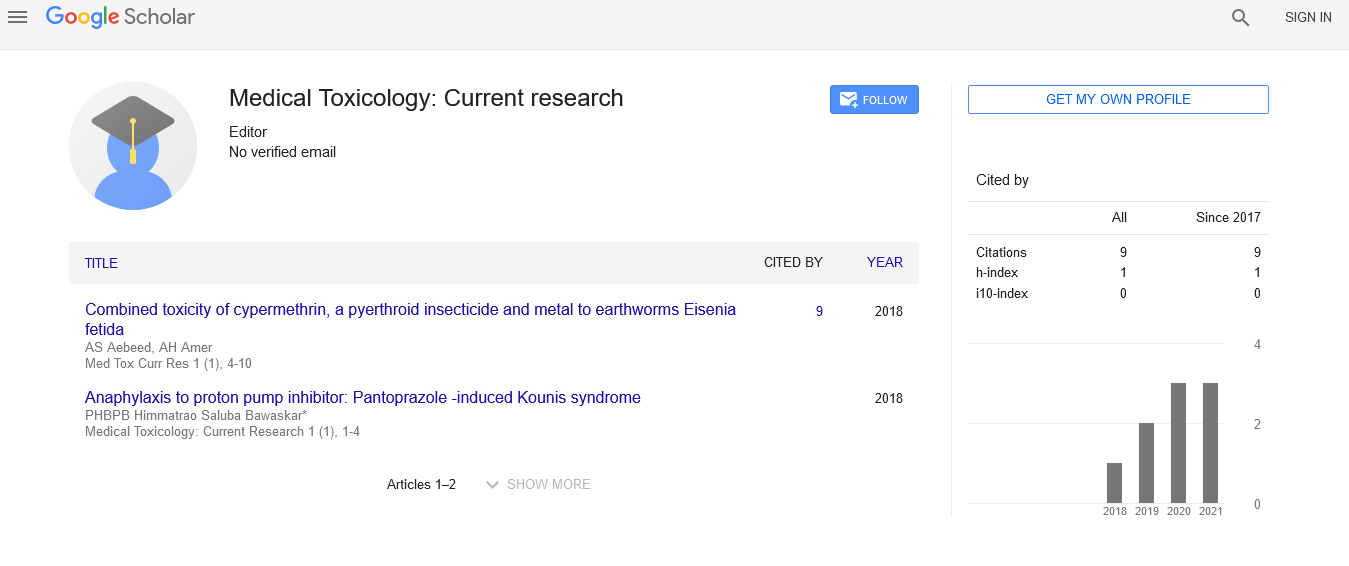
Sign up for email alert when new content gets added: Sign up
Abstract
A rare case of facial nerve paralysis by apical bee stings
Author(s): Anagha P Rao*, Ishwar S Hasabi, Kalinga B E and Vishwanath PatilIntroduction: Apical bee stings are common scenarios in modern clinical practice in India. The clinical manifestations vary widely from simple allergic reactions to life-threatening anaphylaxis. Despite the large number of notified bee sting cases, among the neurological symptoms, peripheral facial nerve palsy is a rare manifestation.
Case report: A 37-year-old lady developed isolated lower motor neuron-type facial paralysis on the sixth day of bee stings, a rare delayed neurological manifestation. After a course of systemic glucocorticoid therapy, she recovered successfully.
Discussion: Bee sting manifestations are classified as early or late reactions. IgE-related mediators like histamine, proteases, and thromboxanes facilitate early reactions. Late manifestations are perceived to be non-IgE-mediated immunological responses (type III hypersensitivity) to Hymenoptera venom involving deposition of immune complexes and complement activation. The mainstay therapy involves early and short-term use of steroids to inhibit and reduce the allergic reaction, prevent necrosis of tissues, relieve the stress response to bee venom, and minimize neuritis.
Full-Text | PDF




